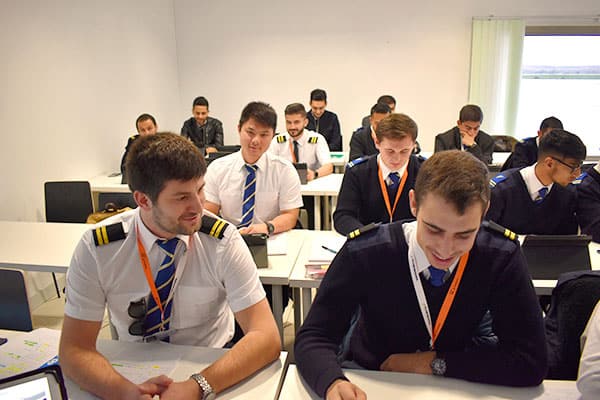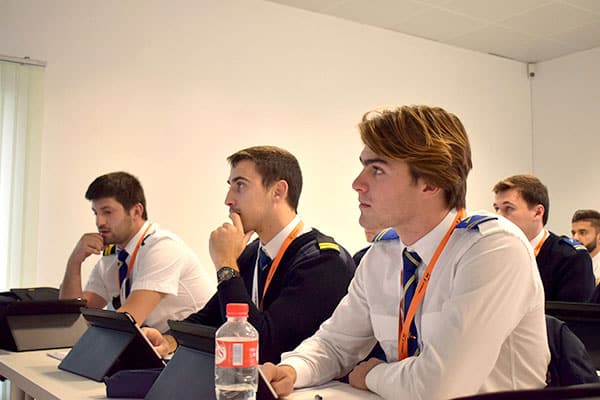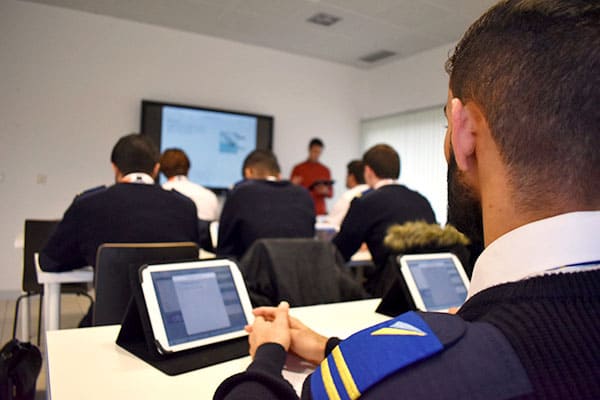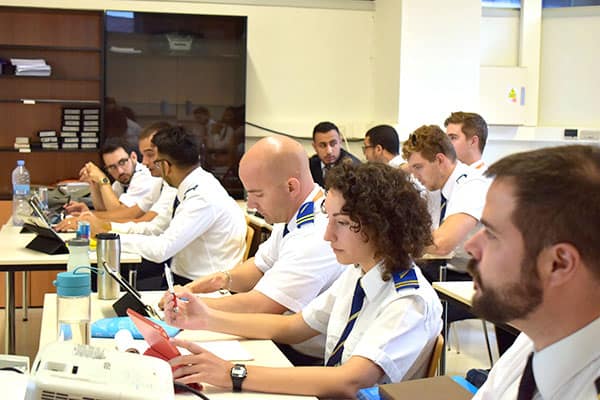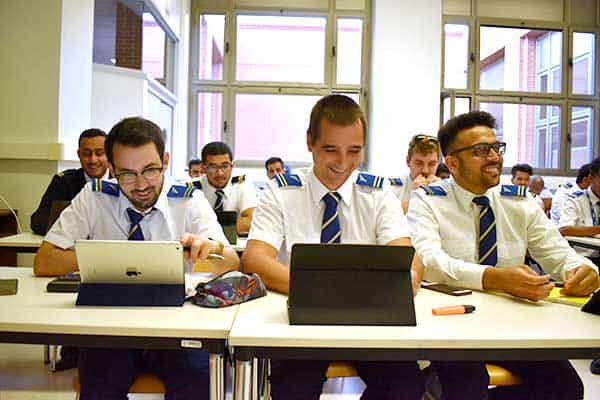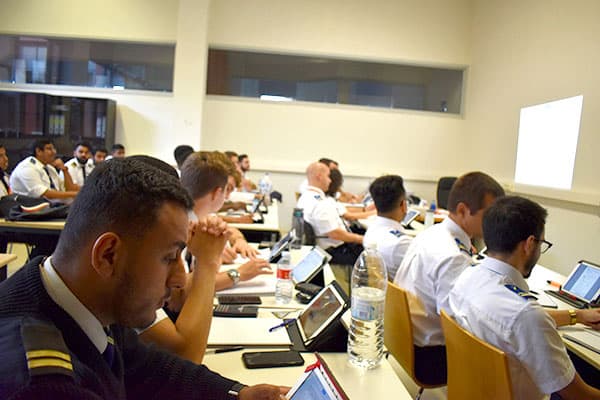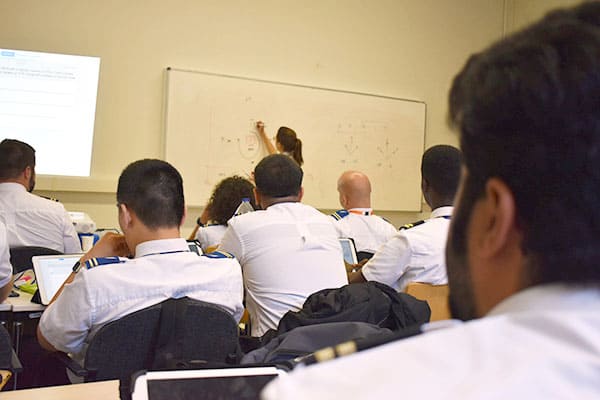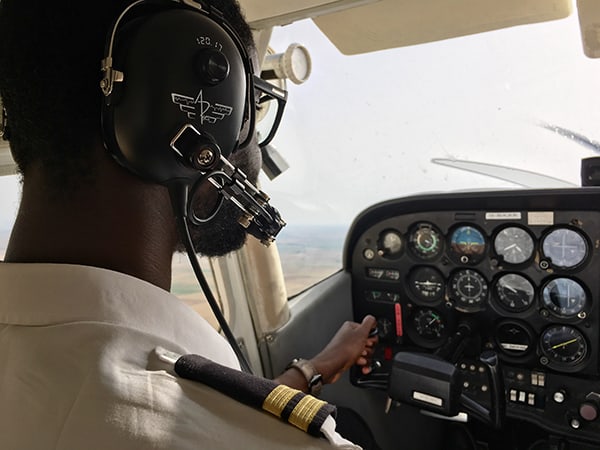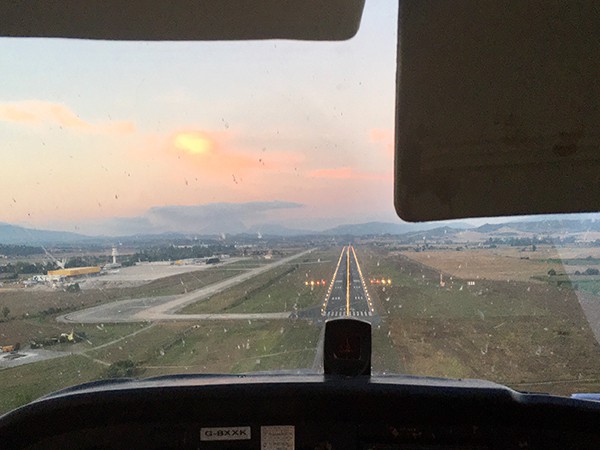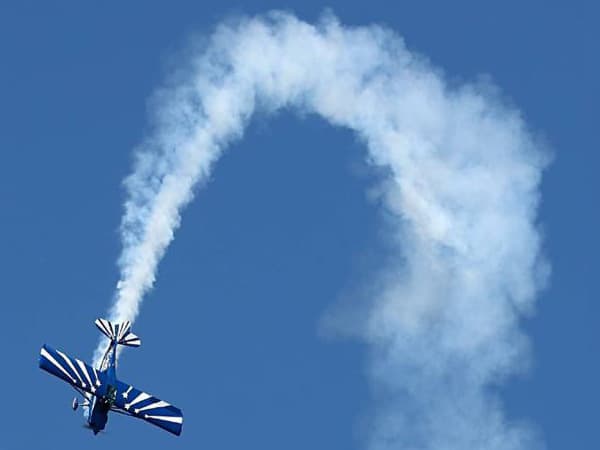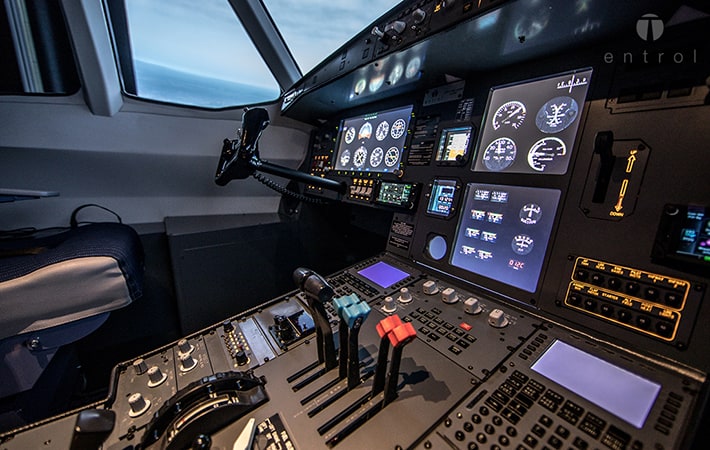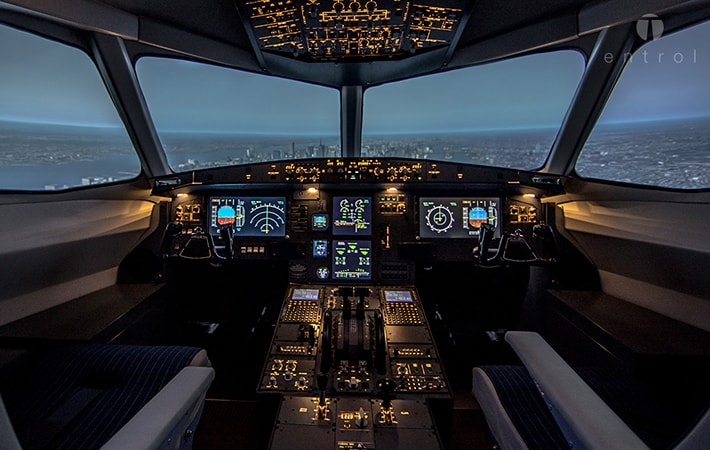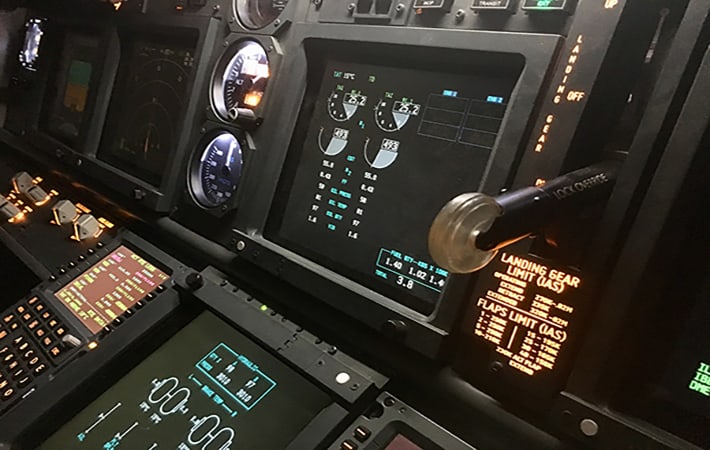Integrated ATPL Course Descriptions
Ground School – Phase 1
Our Groundschool classes our split up into two phases to make learning easier for you. Arriving in Burgos you will begin with Phase 1: an introductory into the ATPL subjects. Classes will be 5 hours a day, 5 days a week (Monday-Friday). This phase will last two months and you will have to pass our school exams at the end in order to move on to Phase 2. We cater for a variety of abilities so our instructors are very adaptable with their teaching; your needs will come first and we will provide you with high quality service. Like in aviation, all classes are taught in English independent of your nationality. During this stage, you will be provided with a number of materials including uniform, iPads, maps, charts, etc.
Ground School – Phase 2
Phase 2 is also taught by highly qualified instructors. At this phase of your training you will be transferred to our second operational base in Burgos. Now, groundschool classes will be combined with your visual flight training (VFR), and training gets even more intense. You will dive deep into the 14 ATPL subjects looking more in-depth. Every two months, students have the opportunity to take their official exams with Austro Control in Burgos. Once all 14 exams are passed and completed, students will only focus on the flying element of their training. During your studies, students are provided with different platforms to assist their learning – we provide a 1-year subscription to Bristol Groundschool which all our lessons are taught from, and students also have the option to purchase other materials if they please.
Visual Flight Rules (VFR) Training
In this phase of flying there will be the opportunity to fly to other airports nearby with an instructor, and once you are ready, you can then move on to the final phase of VFR flying, the cross country stage, going to a number of airports and the majority of which being solo. Before completing your VFR flights, you will perform a final check and a triangular flight flying to two airports before returning back to the departure airport – the trip must be 300 nautical miles, as this is the requirement to obtain your Commercial Pilots Licence (CPL). As part of our VFR course we also include night flying which will be carried out across a couple of nights in order to obtain your Night Rating.
Visual flying is all about looking outside. Being located in the North of Spain we are very fortunate to fly over such beautiful landscape – over mountains, over cities, over the coast. No matter what the season is we will do our best to fly; so you may fly over snow covered mountains one day and over sunny beaches the next day.
Instrument Flight Rules (IFR) Training
Now flight training begins to get even more intense with their instrumental flying (IFR). During this stage of the course students will focus on the instruments inside the aircraft and develop their multitasking skills, controlling the plane whilst navigating. Checklists will be followed, precise procedures will be carried out, and students will use approaches to other airports that airlines use also. In the instrumental flying we start with SPIC flights allowing us to easily transition you to the IFR stage. You will know how to complete interceptions, point to point, DME arcs and holding patterns – all of these you will likely use in your final skills test for your Commercial Pilots Licence. These flights will be taught by highly experienced pilots providing you with the best possible learning. During cross country trips you will carry out standard departure and arrival procedures for those airports.
When it is time to advance onto the multi engine training, students will incorporate everything they have learnt so far in their instrumental flights into practice. You will know how to manage with more than one engine, as well as simulating emergencies. Your final skills test will be on this aircraft – the Tecnam P2006T twin engine.
The final part of your flight training with us will be the MCC (Multi Crew Cooperation Course). On our Entrol 4000 FNPT II simulator, students will most probably have the opportunity to fly with the Airbus A320. This will be your first experience on a jet simulator; again carrying out instrumental procedures except during this course you will learn how to fly, and how to work with another pilot. You will know how to share your workload with one another, improve your cockpit management skills, and familiarise yourself with some airline procedures.

